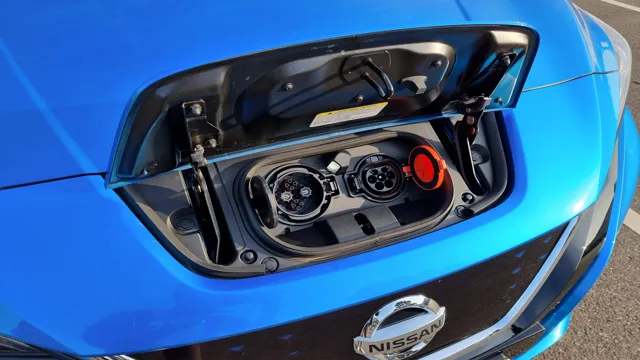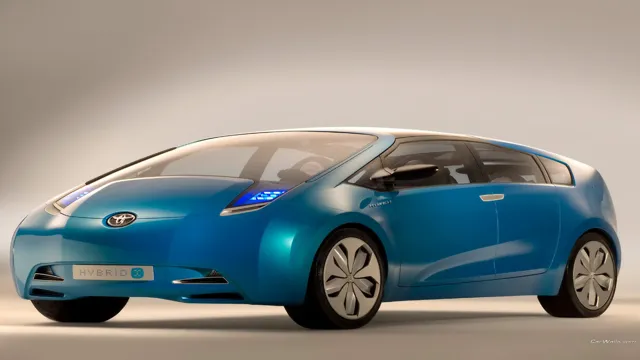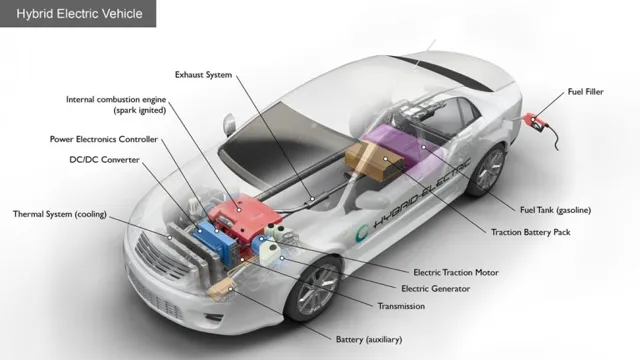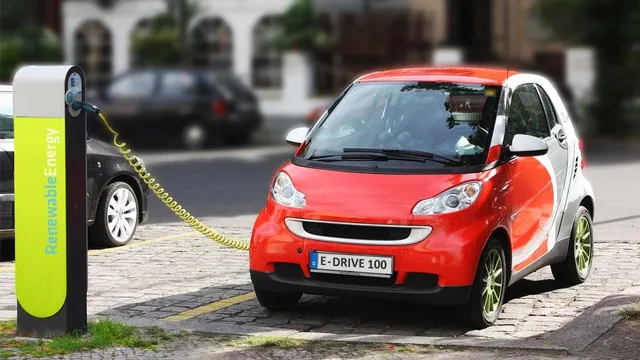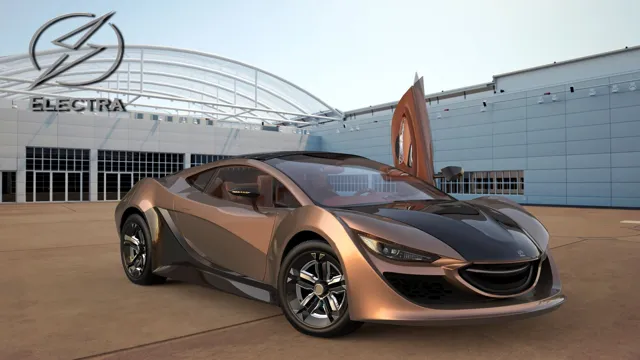Exploring the True Cost of Owning an Electric Car: A Comprehensive Guide to Maintenance Expenses
Electric cars are rapidly gaining popularity worldwide, as more and more motorists switch to this clean and eco-friendly mode of transportation. However, many people are still on the fence about making the switch, mainly because of concerns about electric car maintenance costs. After all, with a regular gasoline-powered vehicle, you only need to worry about oil changes, tire maintenance, and other standard maintenance costs.
But what about electric cars? Are they worth the investment, and what kind of maintenance costs should you expect? In this blog post, we’ll dive into the world of electric car maintenance costs and give you a clear idea of what to expect.
Initial Investment
When it comes to investing in an electric car, the initial cost can be daunting for many buyers. However, the good news is that over the long term, electric cars can save you a significant amount of money in maintenance and fuel costs. The cost of maintaining an electric car is estimated to be around 40% lower than that of a gasoline-powered car, making it a cost-effective choice for those who want to save money in the long run.
The most significant expense when it comes to electric cars is the initial investment, which can range from $30,000 to $100,000 depending on the model and features. However, the federal government and some states offer tax and financial incentives that can help reduce the initial cost. In addition, electric cars require less regular maintenance, have fewer moving parts, and don’t require oil changes, which means you’ll save more money over the car’s lifetime.
So if you’re wondering how much it costs to maintain an electric car, the answer is that it’s initially more expensive, but in the long term, it’s a more cost-effective and eco-friendly option.
Purchase Price and Tax Credits
When it comes to purchasing an electric car, the initial investment can seem daunting. The sticker price of an electric car can often be higher than its gas-powered counterparts, but it’s important to consider the long-term savings and benefits. Electric cars have lower fuel and maintenance costs, and the federal government even offers tax credits for purchasing an electric car.
The amount of the tax credit varies depending on the make and model of the car, but it can potentially save you thousands of dollars. It’s important to do your research and consider all the factors when deciding whether to make the initial investment in an electric car. While the purchase price may be higher, the long-term benefits and savings could make it a worthwhile investment in the long run.
So, don’t let the initial investment scare you away from exploring the world of electric cars.

Cost of Home Charging Station
If you’re considering the purchase of a home charging station for your electric vehicle, you may be wondering about the initial investment. The cost of a home charger can vary depending on several factors, including the type of charger, installation costs, and any additional features you may want. Generally, the cost of a basic Level 2 home charging station can range from $400 to $800, plus installation fees.
While this may seem like a significant investment, it’s important to consider the long-term cost savings of charging your vehicle at home instead of relying on public charging stations. Additionally, some electric vehicle manufacturers offer incentives or rebates for the installation of a home charging station, which can help offset the initial cost. Overall, investing in a home charging station for your electric vehicle can provide convenience, cost savings, and peace of mind knowing that you have a reliable and efficient way to charge your vehicle at home.
Routine Maintenance
If you’re thinking of purchasing an electric car, one of your biggest concerns may be how much it costs to maintain it. The good news is that electric cars require less routine maintenance than their gas-powered counterparts. Due to having fewer moving parts, electric cars require fewer oil changes and transmission repairs.
Additionally, regenerative braking keeps brake pads in better condition and reduces replacement needs. The cost of routine maintenance typically ranges from $50 to $100 a year, depending on battery upkeep and tire rotations. While electric cars may have a higher initial cost, their lower maintenance needs could save you money in the long run.
Overall, you can expect to spend slightly less on maintenance for an electric car than for a gas-powered one.
Battery Maintenance and Replacement
Battery maintenance is crucial for electric vehicles because it affects performance and longevity. Routine maintenance involves checking the battery charge status and ensuring that the battery is clean and free from debris. It’s important to keep the battery charged regularly and avoid letting it remain discharged for too long.
In addition, it’s important to avoid exposing the battery to extreme temperatures, both hot and cold, as this can affect its performance. If you notice any signs of malfunction or decreased performance, it’s important to have the battery checked by a professional. By taking care of your battery and performing routine maintenance, you can extend its lifespan and ensure that your electric vehicle runs smoothly for years to come.
By keeping an eye on your electric vehicle’s battery and taking good care of it, you’ll enjoy fewer issues with your car and enjoy more efficient and reliable performance.
Tire Rotation and Replacement
Tire rotation and replacement are two essential components of proper vehicle maintenance that can increase the lifespan of your tires and improve your vehicle’s overall performance. Tire rotation involves moving the tires from one position to another to ensure that they wear evenly over time. Generally, it’s recommended to rotate your tires every 5,000-7,500 miles or as indicated in your owner’s manual.
Regular tire rotation can help you avoid uneven wear, improve handling, and prevent premature tire replacement. On the other hand, tire replacement is required when your tires are worn down to their minimum safe tread depth. Worn-out tires can be dangerous, especially in wet or slippery conditions, and can lead to reduced traction, poor handling, and even accidents.
So, it’s crucial to inspect your tires regularly and replace them when necessary to ensure safe driving. Overall, proper tire maintenance, including regular rotation and replacement, is vital for keeping your vehicle in good condition and ensuring your safety on the road.
Brake Pad Replacement
Brake pad replacement is a crucial part of your vehicle’s routine maintenance. Brake pads are responsible for stopping your vehicle, and over time they wear down due to consistent use. That’s why it’s important to replace them regularly to prevent any mishaps on the road.
But how do you know when it’s time to replace them? There are a few signs you can look out for, such as a loud squeaking or grinding noise when you brake, a vibrating brake pedal, or a longer braking distance. If you notice any of these signs, it’s best to take your vehicle in for a checkup. A technician can inspect your brakes and let you know if it’s time for new brake pads.
Not replacing them in time can lead to more severe damage to your brake system and can put your safety at risk. Don’t wait until it’s too late, make sure to prioritize your routine maintenance and keep your vehicle in top shape.
Unexpected Repairs
Want to know how much it costs to maintain an electric car? Well, unexpected repairs can be a costly surprise for any car owner, and electric cars are no exception. While electric vehicles generally have fewer moving parts than traditional gasoline-powered cars, they still require maintenance and upgrades that can add up over time. The cost of maintaining an electric car depends on several factors including the make and model of your car, battery life, and where you live.
If you’re lucky, you may only need to change the tires and possibly the brake pads, but other repairs like unexpected battery replacements can range from a few hundred to several thousand dollars. It is essential to keep up with scheduled maintenance and be prepared for any unexpected repairs to ensure that your electric car stays in great shape for years to come.
Common Electric Car Repairs and Costs
Electric Car Repair Costs While electric cars are generally considered to be more reliable than their gasoline counterparts, they are not immune to unexpected repairs. One of the most common repairs that electric car owners may encounter is a malfunctioning charging system. This can be caused by a faulty charger or a problem with the car’s battery.
Other potential repairs include issues with the electric motor or the regenerative braking system. These types of repairs can be costly, with the average cost of an electric car repair ranging from $300 to $1,500. However, some repairs may be covered under warranties or insurance policies, so it’s always best to check before footing the bill yourself.
The key takeaway is that while electric cars may require fewer repairs overall, unexpected issues can still arise and should be considered when budgeting for the cost of electric car ownership.
Warranty and Service Plans
Warranty and Service Plans When it comes to unexpected repairs, it’s crucial to have the right warranty and service plan in place. With these plans, you can rest assured that you won’t be caught off guard by costly repairs. Whether you’re experiencing issues with your car, home appliances, or electronics, a warranty or service plan can provide you with the protection you need.
Did you know that some warranties cover accidental damage? This means that even if you accidentally drop your phone or spill something on your laptop, you could be covered. Furthermore, some service plans include regular maintenance and check-ups, which can help prevent unexpected breakdowns. It’s always a good idea to carefully review and compare the different options available to you, so you can select the right warranty or service plan that meets your needs.
Additionally, be sure to check the terms and conditions to understand what is and is not covered, as well as any limitations or exclusions.
Overall Cost Comparison
When looking at the overall cost of owning an electric car, it’s important to consider both the short-term and long-term expenses. Upfront costs may be higher than those of a traditional gas-powered car, but electric vehicles typically have lower maintenance costs. They don’t require as many oil changes or tune-ups, and their brakes can last longer due to regenerative braking technology.
Additionally, electric cars tend to have lower fuel costs since electricity is cheaper than gasoline. It’s estimated that the average electric car owner can save around $770 per year on fuel costs compared to a traditional car owner. However, it’s important to note that the cost of electricity can vary depending on location and provider.
Overall, while the initial sticker price may be a bit higher, electric cars can save a driver money in the long run thanks to their lower maintenance and fuel costs.
Conclusion
In conclusion, the cost of maintaining an electric car may seem daunting at first, but in reality, it’s not as shocking as it initially appears. With lower maintenance costs, tax incentives, and the potential to save on gas expenses, electric cars can ultimately save you money in the long run. So take the plunge and let your bank account give a “charge” of approval when you switch to an electric vehicle.
FAQs
Is it more expensive to maintain an electric car compared to a gasoline car?
Overall, electric cars tend to have lower maintenance costs than gasoline cars due to having fewer moving parts and no oil changes required. However, the cost of repairs may be higher for some electric car models.
What are the typical maintenance costs for an electric car?
The typical maintenance costs for an electric car include tire replacements, brake pad replacements, and checking/changing the battery coolant. These costs vary depending on the model of the electric car and driving habits.
How often should I get my electric car serviced?
It is recommended to get your electric car serviced at least once a year or every 10,000-15,000 miles. This includes checking the brakes, tires, battery, and other crucial components.
Can I perform maintenance on my electric car myself?
Some basic maintenance tasks such as checking tire pressure or topping off windshield wiper fluid can be done by the owner. However, more complex tasks such as battery maintenance should be done by a certified technician to avoid damaging expensive components.

